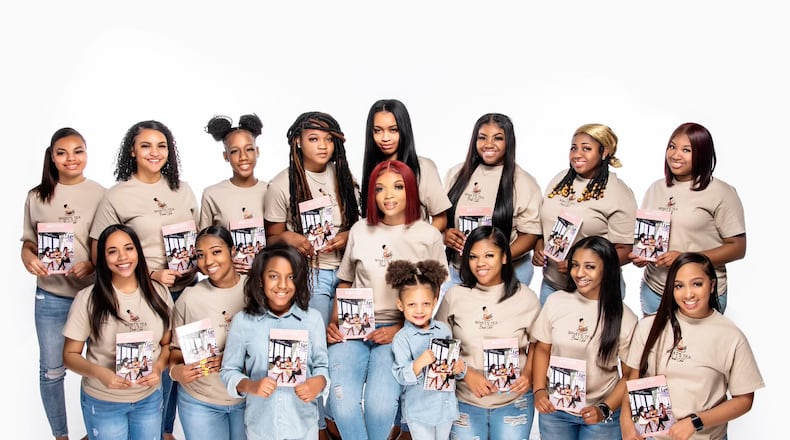Hogue knows that isn’t true. The 27-year-old intervention specialist at Dayton Early College Academy high school has written two guided self-help books for African American teens and has led a number of book clubs to help them use the books to gain confidence and understand how their experiences impact them in different ways.
Her first book, “What’s Tea? A Guide for African American Teenage Girls Outgrowing People, Places, and Bad Habits,” was born out of the pandemic and addresses many of the issues that students come to her about. Her second book, “Don’t Cry Over Spilled Tea,” was published late last year.
Hogue’s interactive book clubs for high school and middle school students give girls a chance to talk about topics they aren’t comfortable discussing with others, said Kristian Daniels, a DECA High senior and one of several people to nominate Hogue as a Dayton Daily News Community Gem.
Daniels, who has participated in two of the clubs, said that students discuss not only high school, but also their families, friendships and troubles they are facing. What’s more, Hogue shares experiences from her own life so the students can build and learn from them.
“Her book makes you feel not alone. She went through everything we’re currently going through in high school,” Daniels said.
The book club – which is run through Hogue’s nonprofit organization, After School Special – often brings together girls who were not already friends. Now she sees participants speak together in the halls, Hogue said.
“I just really hope they gain a sisterhood out of it,” she said.
Daniels last year also participated in Hogue’s first entrepreneur conference for Black girls, where she was awarded a $1,000 college scholarship. Participants met Black female entrepreneurs, created their own plans and pitched presentations in an effort to win scholarships, Hogue said. The conference returns this summer on a larger scale.
Hogue hopes she is giving students the books, groups and discussions that would have helped her when she was growing up. As an educator at the same school from which she graduated, Hogue sees many of the same issues she witnessed then. Now she mediates those issues, and she sees that many students want to work through them, too.
She discusses many topics in her books, including forgiveness, relationships, boundaries, worthiness, insecurities and more. Her books and the conversations she leads help students navigate and articulate what they are going through.
Hogue wants her initiatives to provide a space for Black girls to talk while also raising awareness about the differences in how they are treated.
“Children of color should have the opportunity to have the platform to create their own opportunities,” Hogue said. “That’s what I stress to my girls the most – you don’t have to wait on anybody else. You can do it yourself.”
About the Author
